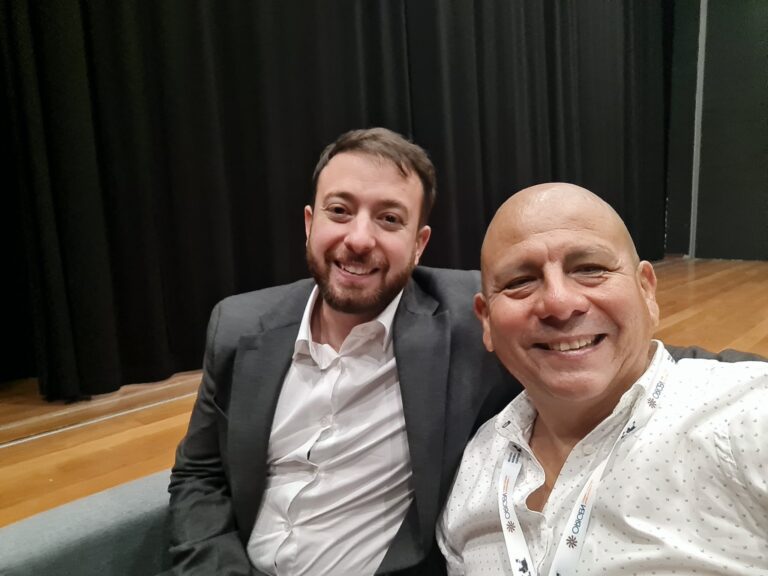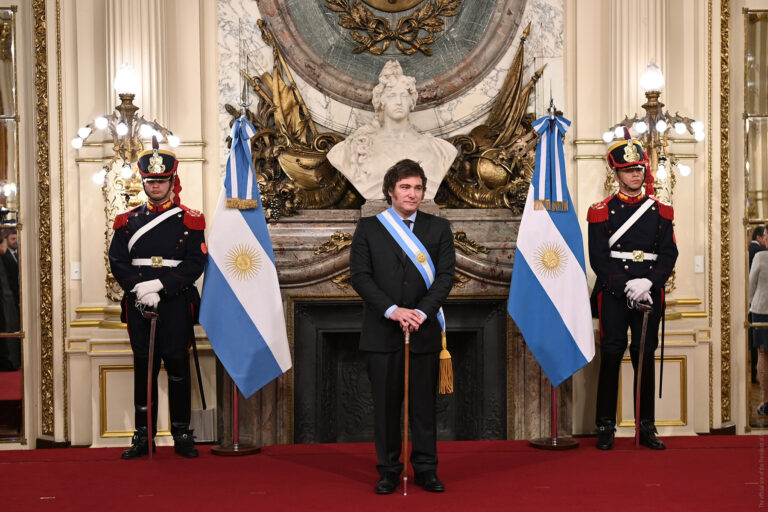Newly initiated participants in the recent series of United Nations conferences, unfamiliar with UN bureaucratic language, were at a disadvantage in analyzing the resulting resolutions. The heated debates over the more obvious controversial issues drew attention away from the background language of the documents, further deterring a comprehensive analysis.
The significance of repetitive references to non-governmental organizations (NGOs), while understood as newly-emphasized since the Rio Earth Summit. didn’t carry a particularly weighted significance for them. Had questions been raise about NGO involvement, the response would most likely have been that this merely reflected a salutary trend toward democracy in an organization which had long been criticized as elitist. After all, it wasn’t unusual, on occasion, to see posters in the halls of the UN calling for a “more democratic United Nations.”
References to a “civil society” would have been understood as nothing more than a “community of citizens,” if such references had been noticed at all. And, who could be opposed to citizen participation? Yet, buried within the political language of the UN document lies a carefully-structured, ideological plan for world governance. It is the task of this short essay to reveal some aspects of that plan.
Rationale for the UN civil society
The rationale for the UN “civil society” has been described by the United Nations Research Institute for Social Development (UNRISD) in a report titled “The Crisis of Social Development in the 1990s: Preparing for the World’s Social Summit.” Framed in crisis-ridden language, the report proclaims the necessity of “new institutional arrangements at the international level” and declares the need for “the breaking of old patterns.”
It casts dispersions upon the “neo-liberal experiment” of “free market ideology” current in the 1990s and insists that there isn’t any positive correlation between the development of a “civil society” and democratic government. This is said with the clear implication that authoritarian government organized under UN leadership — paid for by the citizens of the world — is the solution that will build a true “civil society.” Further, “weak states” lead to “weak civil society,” according to UNRISD.
The report states further, “Now is the time for ‘Vision and Commitment’” in a world which has a “place for utopias.” In support of the utopian illusion, an unidentified individual. Lars Anell, is quoted as saying, “History is filled with things which were completely unrealistic the day before they happened.”
Following through on the UNRISD proposal, the World Summit for Social Development (WSSD) held in Copenhagen January 1995, proposed the formation of a new “civil society” to be composed of the United Nations and its member states, private voluntary groups (PVOs) and non-governmental organizations (NGOs). UNRISD describes the major characteristic of the new civil society as “continuous change.”
Necessary to the support of this supposedly “unplanned chaos,” is the formation of institutions which are “open to different ways of understanding and acting” and “able to integrate new constituents.” As a matter of fact, it seems that there are “many groups which may in earlier periods have been only indirectly involved in the global debate on social policy and social reform.” And, who could those groups be? The NGOs, of course!
Meet the NGO’s
NGOs, according to the UN Department of Public Information (DPI), have become necessary because of the “Growing inability on the part of many Governments alone to cope with the proliferation of social problems.” Now with the thrust for “globalization on the one hand and participation on the other,” NGOs are to become “an essential dimension of public life at all levels and in all parts of the world,” according to DPI. Further, it appears that the “Developed country NGO programmes [have] doubled in size from 1975 to 1985” probably as a direct result of a 35% increase in official funding as governments channeled programs through those NGOs to the developing countries (“NGOs: Partners in Social Development,” DPI, 6–12 March 1995). A major advantage for governments acting through NGOs rather than through direct national funding, is the avoidance of political accountability when promoting controversial programs such as population control.
NGOs are described as “having developed strategies with a visible impact” on the programs of action of the UN conferences at the Earth Summit in Rio, the World Conference on Human Rights in Vienna and at the International Conference on Population and Development in Cairo. As Gertrude Mongella, Secretary General of the Fourth World Conference on Women (FWCW) said, “A revolution has begun and there is no going back NGOs are the democratizing force in this process. They are the agents of change” (Women on the Move, UN Secretariat of the FWCW Division for the Advancement of Women).
The late James Grant of the United Nations Children’s Fund (UNICEF) predicted this when he described women and children collectively as “the Trojan Horse” which would bring about change in society.
Two leaders among women’s NGOs
The collapse of communist states in Russia and Eastern Europe, the various countries struggling to reclaim their stolen and captive territories, Serbian attacks and “ethnic cleansing,” and continued tribal warfare in African countries provides the setting for UN claims that the world is driven by a need for “those who would establish order on behalf of the people.” Acting on the supposition that large populations are the source of war and unrest, it is unsurprising that the UN would choose the NGOs who are funded by population control groups to “represent” the people. The UN documents are plain in their intent to seek major funding for women’s NGOs which will act as a front for big government. The NGOs, in turn, are eager to ‘sup at the public trough.’
Two of the most prominent NGOs active in the Womens Caucus are the Women for Environment and Development Organization (WEDO) headed by Bella Abzug, and the International Women‘s Health Coalition (IWHC) led by Joan Dunlop,
Women for Environmental and Development Organization
Bella Abzug is the charismatic leader who presided with aplomb over the violence-tinged US International Women’s Year (IWY) Conference in Houston, Texas, 1977. Ms. Abzug came to the job as a former congresswoman with a long history of support for population control, including abortion-on-demand. At that time, as the television cameras recorded the events, women who dared to disagree with the IWY “Plan” and dared to walk to the front of the hall and unfurl a banner — were knocked to the floor of the Houston Arena by uniformed IWY women guards who rushed at them from the aisles. Their banner was shredded by the same women guards and one IWY delegate was threatened with a knife. In the side aisles, other brawny IWY women guards, rushed participants who “dared” to hold up opposition signs. Running guards smashed into the women with their shoulders in an attempt to knock them to the floor. During the melee, Bella leaned with a bored sigh on the podium, refraining carefully from interfering, and finally, as the women who had been physically attacked struggled up off the floor, Bella boomed, “Shall we return to the meeting?”
So much for democracy! And, so much for non-violence!
Since that time Bella’s radical agenda has failed at the national level in the US. Now she is attempting to bypass the American people and impose her failed agenda on the world through her NGO, Women for Environment and Development Organization (WEDO). WEDO’s core budget to carry out this task is over $630,000; other funding is granted by international foundations when the need arises. The organization is funded by several population groups including the Turner Foundation, famed for its imperialistic population control ideology. The Turner Foundation and other population groups have baited the trap. They — and Bella — expect the world’s women “to take the bait.”
It was of interest to be instructed by the representative of the US Consulate during a recent US State Department briefing that NGOs in Beijing must be careful not to unfurl banners in Tianamen Square. Shades of the IWY meeting in Houston, Texas! Another nondemocracy!
International Women’s Health Coalition
Joan Dunlop, president of the UN-associated International Women’s Health Coalition (IWHC), is a longtime protégé of the notorious population potentate John D. Rockefeller HI. It is interesting to note that the IWHC claims to be mediating with the US-based Population Council to inform them of “women’s views” on reproductive health issues.
Ms. Dunlop, as a member of the Population Council (PC) Board since the early 1970s, could have informed her IWHC members that the Population Council already knows quite a bit about women’s “reproductive” systems. What the PC is interested in is being kept abreast of the latest wrinkle in women’s thinking in order to better manipulate them. Women, in the eyes of the PC, are best off when they are hormonally-drugged and their wombs a.re vacated either surgically or with contraction-inducing pharmaceuticals. And, when they are blissfully wedded to men who “surrendered to the knife” of a sterilizing surgeon or who submitted to experiments which dosed them up with sperm killers. Androgyny-at-any-cost is the aim of the Population Council and those who fund it, not women’s health, reproductive or otherwise.
Population Council
The annual income reported by the Population Council in 1994 was $44.4 million. Forty-four percent of the general funds came from government; 22% from foundations, corporations such as Wyeth Ayerst and “other non-governmental organizations”; 20% from internal funds; 8% from multilateral organizations (e.g., World Bank, UNFPA, Asian Development Bank); and 6% from “other” governments. Major industrialized nations funding the Population Council include the United States, and the Nordic countries, Sweden, Norway, Denmark and Finland in addition to Holland, the “land of the euthanized” (Population Council, Annual Report 1994).
The Council claims credit for “an important role” in shaping the agenda of the International Conference on Population and Development (ICPD), Cairo 1994. The use of a “broadened perspective” at the ICPD for which the Council claims credit, originated during the Bucharest Population meeting in 1974 when, in a speech given by John D. Rockefeller III, a strategic approach was begun which redefined population control in terms of woman’s health and women’s rights. It was Joan Dunlop of the IWHC who provided the “creative thinking” for Rockefeller’s strategy of using women as a front for his goals.
Research presently being carried out on the world’s women and men by Population Council staff in South and East Asia, West Asia, North Africa, Sub-Saharan Africa and Latin America and the Caribbean, focuses on the following: the levonorgestrel — releasing implant Norplant I; a new version, Norplant II, targets lactating mothers; a levonorgestrel-releasing IUD, the Copper T 380Ag IUD, and the Copper T 380A; a vaginal ring which releases progestin or estrogens; male contraceptives such as peptide-releasing subdermal implants and antifertility vaccines (immunocontraceptives); an androgen (MENT)-releasing implant which attempts to mitigate the effects of peptide and protect against the “loss of potency, libido, and secondary sex characteristics” in men. These efforts are complemented by the Council’s work to “reach beyond conventional boundaries of service provision to influence and alter the cultural and familial factors limiting voluntary contraceptive use” (Annual report, 24–26).
Other NGOs
Numerous NGOs are affiliated with the UN. Among them are a wide variety of organizations which service the education, health and social service infrastructure worldwide. These would include Planned Parenthood affiliates in the various countries and organizations associated with the implementation of population control. Environmental organizations are also prominent in the NGO listings.
While NGOs affiliated with the UN are required to be registered educational and charitable organizations (that is, nonprofit groups), a significant number of nonprofit groups within the UN member states are not UN affiliates. A brief sampling of US NGOs would include: The World Wildlife Fund with an annual income of $62,030,495 in 1993; Planned Parenthood Federation of America, annual income $41,869,858 in 1992; the Children’s Defense Fund, annual income $13,008,018, 1993; Environmental Defense Fund, annual income $22,307,335, 1993; World Vision, annual income. $258,416,000, 1993; the US Committee for UNICEF, annual income $46,863,000, 1993; and The Johns Hopkins Population Communications Services (includes Population Information Program), five year cooperative agreement with US Agency for International Development, core funds $30,470,117, with buy-ins from Africa, Latin America, Asia and the Near East of $20,891,662, producing a total of $51,361,779, 1990–1995 (Annual Charity Index, Council of Better Business Bureaus, 1994).
The nature of “civil society”
The United Nations proposes to resolve the problems of the world through the breakdown of existing nation states and the transfer of political and economic power to the new UN “civil society.” NGOs within this framework are treated as “the electorate,” as representative of the peoples of the world, although they are unelected and actually represent special interest groups paid by government. Neither NGOs nor the United Nations leadership have been elected by the people; the consent of the world which they clearly intend to “govern,” is lacking. When asked about the lack of representative democracy in “civil society” at a recent program at The American University in Washington, D.C., Dr. David Baudot, of the UN Development Programme (UNDP) responded publicly that the UN is “moving toward representative government.” This has been the timeless promise of numerous world tyrants.
Further, governments in a number of UN member countries are either military security governments or tyrannies. This joins the UN theory — that democratic government does not necessarily correlate with “civil society” — to UN practice. It has been in these countries with repressive government that aggressive population control programs have been most likely to be located through the direct intervention of UN-associated agencies such as the United Nations Population Fund (UNFPA) and the World Bank. This has occurred in the Philippines under Marcos, in Communist China, in Indonesia, in Nigeria under the present corrupt military security government, in Egypt under the military-backed government of President Hosni Mubarak, and during the reign of military security governments in countries in Latin America, and elsewhere.
The strategy of using repressive governments to impose UN programs is described in a recommendation by the president of the International Development Association (IDA) to the World Bank as it prepared a $78 million population loan program in Nigeria. The recommendation described the possible “risk” of “transition” should the country return to civilian rule. The HBA president reminded the Bank that Nigeria’s population policy was developed under the “period of military rule” and “civilian politicians” would be “less likely to give high priority to an interventionist population policy” (“Nigeria: Population Policies,” IDA, 19 April 1991, 45).
It would be governments such as these, and others controlled by loan and grant monies from the industrialized world, which would choose the NGOs to carry out government policy in the UN civil society, The world has already experienced the trauma induced by such NGOs through the activities of the International Planned Parenthood Federation, and like-minded organizations. Increased access to funds will worsen the situation.
Political expediency in NGO politics
Nina Chowdhury, writing in the Bangladesh Daily Star, 17 April 1995, speaking from the experience of living and reporting in a developing country, described the presence of “political expediency” in the world of NGO politics. Both “women’s rights” and “family planning,” according to Chowdhury, are old funding favorites which “reflect the Western obsession” to check the Third World population, referred to by First World elites as “them.” NGOs, warns Chowdhury, don’t appear to need any expertise or experience to claim thousands or even hundreds of thousands of U.S. dollars to implement new programs.
The golden rule of bureaucratic success
The golden rule of bureaucratic “success” is the increase of clientelle, personnel and funding. The proposal by the UN for the use of NGOs as prominent participants in the civil society offers such gains for both. NGOs stand to gain access to larger populations of clientelle, increased funding from the people (true tyrants make the people pay for their own debasement) as well as the building of prestige through “touching the hems” of world leaders.
The UN and its member states, on the other hand, increases its ability to extend programs through the “running feet” of the NGOs who often “visit” and monitor the people on a door-to-door basis in the developing countries. The UN would also increase its “useability” of national monies through policy access to NGOs active at the community level within member states. Such NGOs often collect fee incomes from third-party payments provided by national social security programs, public health insurance schemes and social service programs, as well as from union funds and professional and business funds, in addition to other sources.
In the United States, just plugging into nonprofit groups which obtain payments from welfare funds could leverage “use-able” federal funds to carry out UN policies through programs such as Aid for Dependent Children (AFDC), Medicaid and Medicare, job training programs, day care, drug education programs, etc.
The Johns Hopkins University redefinitions
Professor Lester M. Salamon, director of The Johns Hopkins Institute of Policy Studies, speaking at a seminar held at the Japanese Federation of Economic Organizations in January, described the advantage of access to private funds in NGO budgets. UN additional access to “use· able” private investment in NGO advocacy groups would include foundation funds such as those of the Ford Foundation, Carnegie Corporation, etc., which frequently fund NGO advocates (“Opening up incredible gates to human capacity,” Integration, Summer 1995, no. 44, 2–8).
Also, where public/private investments bolster NGO efforts, private funds are unregulated by government, providing NGOs (and ultimately the UN) with the ability to provide services uninhibited by government regulation, through the artful use of the “private fund reservoir.” Volunteer services provided within private organizations and NGOs also enlarges the labor base without cost.
Change the rules
Professor Salamon’s innovative approach faults UN rules and regulations which classify “any organization that receives half or more of its income from government” as a government agency. He also critiqued UN rules which hold that “any organization receiv[ing] half or more of its income from fees or charges for the sale of its services” would be classified as “part of the market system” (3).
Not only does this practice limit the “nonprofit sector” to a “marginalized” few, noted Salamon, but it also runs counter to Salamon’s (and the John Hopkins Institute for Policy Studies’) intent “to create local capacity in each of the countries? Having theoretically “opened up the gates” for government-funded groups, Salamon cleverly side-slipped into an expanded definition of NGOs through their general designation as “nonprofit organizations.” As has already been pointed out, not all nonprofit groups at the national levels are NGOs.
Salamon’s redefinition opened up for inclusion in the UN “civil society,” all formal nonprofit organizations, registered or unregistered with the UN. The limited criteria accepted by Salamon was that such groups be organized, and exist, in the private rather than in the public sector; that they be self-governing; and that “voluntary involvement” be a part of the group’s activities. Additional criteria excluded religious (that is, temples, churches, synagogues and congregations) and political groups (4). However, this would not eliminate religiously — based nonprofits in the social service sector such as Catholic Charities, Lutheran Social Services, Catholic Relief Services, etc.
Includes health, education and social service programs
Professor Salamon’s useful redefinitions expanded nonprofits to include major health, education and social service infrastructures in every country throughout the world. This, as certainly Professor Salamon was aware, leveraged “useable” national funds for his newly-defined “emerging sector” of nonprofit groups. This sector would include nonprofit universities and schools, community health agencies and social service agencies.
Social service agencies, as “the vehicle for state-funded welfare services,” would leverage one of the fastest growing subsets within the infrastructure of the industrialized world. Even as education and health care funding slowed down in the United States during the 1980s, funding for welfare services expanded exponentially.
Health care nonprofit sectors under the redefinitions would include private hospitals and community health centers. Also included would be “half of our colleges and universities” in the US which are organized as nonprofit institutions (Ibid.)
Is it just coincidence that Johns Hopkins Institute for Policy Studies would undertake the redefinition of government-funded groups as general nonprofit groups rather than as government agencies under the project titled “Johns Hopkins Comparative Nonprofit Sector Project?” The Johns Hopkins University is on the receiving end of millions of government dollars for their international programs. Professor Salamon’s analysis and redefinitions updated their location, conveniently, right in the middle of the UN’s new “civil society.”
This accounts for the familiar ring of Salamon’s recent article in Foreign Affairs in which he argues that “there are four crises and two revolutions that have come together simultaneously at this period of global history to weaken the hold of the state in many different countries in many parts of the world, and to increase attention and reliance on private, non-governmental organizations” (2).
Disdain this connection between the UN civil society and Professor Salamon’s timely project if you will, but start looking, nevertheless, for the UN to begin loosening its rules and regulations relating to nonprofit organizations.
Conclusion
The United Nations proposes to form a ruling order, “a civil society,” composed of the UN and its member states, private voluntary organizations and non-governmental organizations (NGOs). Search as you may among the components of that order, you will find no sign of elected or representative government. Neither the UN delegates nor the NGOs are elected.
Many of the NGOs are either funded by government or by ideologically-driven foundations. Rather than constituting an electorate, NGOs, within the UN model, replace the electorate. The liberal, classless society of free citizens is abolished; its’ place in society is occupied by NGOs as a paid class of “chosen social forces.” The nations’ people are to be controlled and monitored in all aspects of their lives, even in their most intimate and personal relationships, by NGOs operating as a privileged class of workers exercising the will of the State upon the people. The UN’s bold proposition to create a classed society, forming “solidarity” with NGOs through shared access to national monies and decision-making at all levels, constitutes an arrogant bypass of the world’s people.
A number of governments of UN member states are authoritarian or even totalitarian. Some of these have histories of corruption. Under such governments, NGOs chosen by government will subjugate the people further.
Professor Lester M. Salamon of The Johns Hopkins University redefined NGOs within the context of the larger, unaffiliated non-profit community. By doing this, he expanded the number of non-profits subject to the UN “civil society.” Within this larger category were significant numbers of non-profit groups which are deeply embedded in nations’ education, health and social service infrastructures such as private schools and universities, hospitals, community health centers and nursing homes. This would grant a vast expanse of power and access to “useable” funding to the UN “civil society.”
The formation of the UN “civil society” is a powerful and un-democratic political/economic tool which will have broad appeal to organizations and pressure groups already embedded within national societies. Neither they nor the UN member states speak the “language of the people”; they speak the “language of the empire,” which is economic. Decisions within the economic model are based on “cost effectiveness”; the primary goal is profit, sometimes described more expansively as “benefits.” The stated goal of recent UN conferences, “sustainable development,” limits costs but does not limit profits; benefits are frequently described in exaggerated, utopian terms.
Within this framework, human beings, individually and in the aggregate, are viewed as “human resources” and for “human capital.” Women are to be reorganized as “productive woman” versus “reproductive woman.” Men and women alike are to be treated as “material” for provider-controlled technologies.
The spiritual nature of humans in the economic model is to be bent to the will of the State. Secularized “spiritual” concepts are designed to control the individual in society; virtue and vice have been redefined for both ideological purposes and in order to accrue economic benefit to the State.
Contemporary poet W.H. Auden, in his poem “August 1968,” referred to an “Ogre [who] stalked with hands on hips while drivel gushes from his lips [on a] subjugated plain” [among the] desperate and slain.” Auden might well have recognized the figure of his “Ogre” looming ominously in the background as the highly systematized, and often defiantly anti-Christian goals of the United Nations and its associated agencies, have come into view during recent UN conferences.










